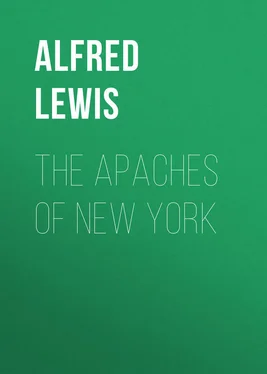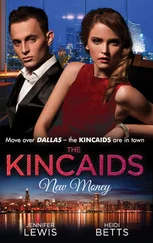Alfred Lewis - The Apaches of New York
Здесь есть возможность читать онлайн «Alfred Lewis - The Apaches of New York» — ознакомительный отрывок электронной книги совершенно бесплатно, а после прочтения отрывка купить полную версию. В некоторых случаях можно слушать аудио, скачать через торрент в формате fb2 и присутствует краткое содержание. Жанр: foreign_prose, на английском языке. Описание произведения, (предисловие) а так же отзывы посетителей доступны на портале библиотеки ЛибКат.
- Название:The Apaches of New York
- Автор:
- Жанр:
- Год:неизвестен
- ISBN:нет данных
- Рейтинг книги:3 / 5. Голосов: 1
-
Избранное:Добавить в избранное
- Отзывы:
-
Ваша оценка:
- 60
- 1
- 2
- 3
- 4
- 5
The Apaches of New York: краткое содержание, описание и аннотация
Предлагаем к чтению аннотацию, описание, краткое содержание или предисловие (зависит от того, что написал сам автор книги «The Apaches of New York»). Если вы не нашли необходимую информацию о книге — напишите в комментариях, мы постараемся отыскать её.
The Apaches of New York — читать онлайн ознакомительный отрывок
Ниже представлен текст книги, разбитый по страницам. Система сохранения места последней прочитанной страницы, позволяет с удобством читать онлайн бесплатно книгу «The Apaches of New York», без необходимости каждый раз заново искать на чём Вы остановились. Поставьте закладку, и сможете в любой момент перейти на страницу, на которой закончили чтение.
Интервал:
Закладка:
“Detroit! Baltimore!” exclaimed the Dropper. “W’y, it’s woise’n bein’ in stir! A guy might as well be doin’ time as live in them burgs!”
The Dropper, in his iron-fisted way, was sincere in what he said. Later, he himself was given eighteen spaces in Sing Sing, which exile he might have missed had he fled New York in time. But he couldn’t, and didn’t. And so the Central Office got him, the District Attorney prosecuted him, the jury convicted him, and the judge sentenced him to that long captivity. Living in New York is not a preference, but an appetite – like drinking whiskey – and the Dropper had acquired the habit.
What was the Dropper settled for?
Robbery.
It’s too long to tell here, however, besides being another story. Some other day I may give it to you.
Spanish, having abandoned New York, could no longer bear Alma loving company at picnic, rout and racket. What was Alma to do? She lived for routs, reveled in rackets, joyed in picnics. Must these delights be swept away? She couldn’t go alone – it was too expensive. Besides, it would evince a lack of class.
Alma, as proud and as wedded to her social position as any silken member of the Purple and Fine Linen Gang that ever rolled down Fifth Avenue in her brougham, revolved these matters upon her wheel of thought. Also, she came to conclusions. She, an admitted belle, could not consent to social obliteration. Spanish had fled; she worshipped his black eyes, his high courage; she would keep a heart-corner vacant for him in case he came back. Pending his return, however, she would go into society; and, for those reasons of expense and class and form, she would not go alone.
Alma submitted her position to a beribboned jury of her peers. Their judgment ran abreast of her own.
“A goil would be a mutt,” they said, “to stay cocked up at home. An’ yet a goil couldn’t go chasin’ around be her lonesome. Alma” – this was their final word – “you must cop off another steady.”
“But what would Johnny say?” asked Alma; for she couldn’t keep her thoughts off Spanish, of whom she stood a little bit in fear.
“Johnny’s beat it, ain’t he?” returned the advisory jury of friends. “There ain’t no kick comin’ to a guy what’s beat it. He ain’t no longer in th’ picture.”
Alma, thus free to pick and choose by virtue of the absence of Spanish, picked the Dropper. The latter chieftain was flattered. Taking Alma proudly yet tenderly under his mighty arm, he led her to suppers such as she had never eaten, bought her drinks such as she had never tasted, revolved with her at rackets where tickets were a dollar a throw, the orchestra seven pieces, and the floor shone like glass. It was a cut or two above anything that Spanish had given her, and Alma, who thought it going some, failed not to say so.
Alma was proud of the Dropper; the Dropper was proud of her. She told her friends of the money he spent; and the friends warmed the cockles of her little heart by shrilly exclaiming at pleasant intervals:
“Ain’t he th’ swell guy!”
“Betcher boots he’s th’ swell guy,” Alma would rejoin; “an’ he’s got money to boin a wet dog! Th’ only t’ing that worries me,” Alma would conclude, “is Johnny. S’ppose he blows in some day, an’ lays for th’ Dropper?’
“Th’ Dropper could do him wit’ a wallop,” the friends would consolingly return. “He’d swing onct; an’ after that there wouldn’t be no Johnny Spanish.”
The Round Back Rangers – it was, I think, the Round Backs – gave an outdoor racket somewhere near Maspeth. The Dropper took Alma. Both were in high, exultant feather. They danced, they drank, they rode the wooden horses. No more gallant couple graced the grounds.
Cheese sandwiches, pig’s knuckles and beer brought them delicately to the banquet board. They were among their friends. The talk was always interesting, sometimes educational.
Ike the Blood complained that certain annoying purists were preaching a crusade against the Raines Law Hotels. Slimmy, celebrated not only for his slimness, but his erudition, declared that crusades had been the common curse of every age.
“W’at do youse know about it?” sourly propounded the Humble Dutchman, who envied Slimmy his book-fed wisdom.
“W’at do I know about it?” came heatedly from Slimmy. “Do youse think I ain’t got no education? Th’ last time I’m in stir, that time I goes up for four years, I reads all th’ books in th’ prison library. Ask th’ warden if I don’t. As to them crusades, it’s as I tells you. There’s always been crusades; it’s th’ way humanity’s gaited. Every sport, even if he don’t go ‘round blowin’ about it, has got it tucked somewhere away in his make-up that he, himself, is th’ real thing. Every dub who’s different from him he figgers is worse’n him. In two moves he’s out crusadin’. In th’ old days it’s religion; th’ Paynims was th’ fall guys. Now it’s rum, or racin’, or Raines Hotels, or some such stall. Once let a community get the crusade bug, an’ something’s got to go. There’s a village over in Joisey, an,’ there bein’ no grog shops an’ no vice mills to get busy wit’, they ups an’ bounces an old geezer out of th’ only church in town for pitchin’ horse-shoes.”
Slimmy called for more beer, with a virtuously superior air.
“But about them Paynims, Slimmy?” urged Alma.
“It’s hundreds of years ago,” Slimmy resumed. “Th’ Paynims hung out in Palestine. Bein’ they’re Paynims, the Christians is naturally sore on ‘em; an’ so, when they feels like huntin’ trouble, th’ crusade spirit’d flare up. Richard over in England would pass th’ woid to Philip in France, an’ th’ other lads wit’ crowns.
“‘How about it?’ he’d say. ‘Cast your regal peepers toward Palestine. D’you make them Paynims? Ain’t they th’ tough lot? They won’t eat pork; they toe in when they walk; they don’t drink nothin’ worse’n coffee; they’ve got brown skins. Also,’ says he, ‘we can lick ‘em for money, marbles or chalk. W’at d’youse say, me royal brothers? Let’s get our gangs, an’ hand them Paynims a swift soak in behalf of the troo faith.’
“Philip an’ the other crowned lads at this would agree wit’ Richard. ‘Them Paynims is certainly th’ worst ever!’ they’d say; an’ one woid’d borry another, until the crusade is on. Some afternoon you’d hear the newsies in th’ streets yellin’, ‘Wux-try!’ an’ there it’d be in big black type, ‘Richard, Philip an’ their gallant bands of Strong-Arms have landed in Palestine.’”
“An’ then w’at, Slimmy?” cooed Alma, who hung on every word.
“As far as I can see, th’ Christians always had it on th’ Paynims, always had ‘em shaded, when it comes to a scrap. Th’ Christian lads had th’ punch; an’ th’ Paynims must have been wise to it; for no sooner would Richard, Philip an’ their roly-boly boys hit th’ dock, than th’ Paynims would take it on th’ run for th’ hills. Their mullahs would try to rally ‘em, be tellin’ ‘em that whoever got downed fightin’ Christians, the prophet would punch his ticket through for paradise direct, an’ no stop-overs.
“‘That’s all right about the prophet!’ they’d say, givin’ th’ mullahs th’ laugh. An’ then they’d beat it for th’ next ridge.”
“Them Paynims must have been a bunch of dead ones,” commented the Dropper.
“Not bein’ able to get on a match,” continued Slimmy, without heeding the Dropper, “th’ Paynims declinin’ their game, th’ Christian hosts would rough house th’ country generally, an’ in a way of speakin’ stand th’ Holy Land on its head. Do what they would, however, they couldn’t coax th’ Paynims into th’ ring wit’ ‘em; an’ so after a while they decides that Palestine’s th’ bummest place they’d ever struck. Mebby, too, they’d begin havin’ woid from home that their wives was gettin’ a little gay, or their kids was goin’ round marryin’ th’ kids of their enemies, an’ that one way an’ another their domestic affairs was on th’ fritz. At this, Richard’d go loafin’ over to Philip’s tent, an’ say:
Читать дальшеИнтервал:
Закладка:
Похожие книги на «The Apaches of New York»
Представляем Вашему вниманию похожие книги на «The Apaches of New York» списком для выбора. Мы отобрали схожую по названию и смыслу литературу в надежде предоставить читателям больше вариантов отыскать новые, интересные, ещё непрочитанные произведения.
Обсуждение, отзывы о книге «The Apaches of New York» и просто собственные мнения читателей. Оставьте ваши комментарии, напишите, что Вы думаете о произведении, его смысле или главных героях. Укажите что конкретно понравилось, а что нет, и почему Вы так считаете.












